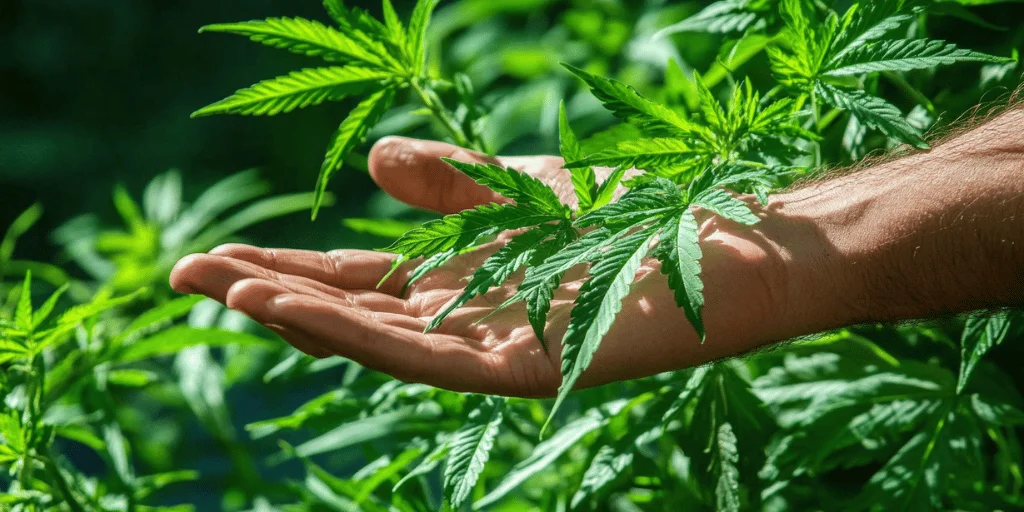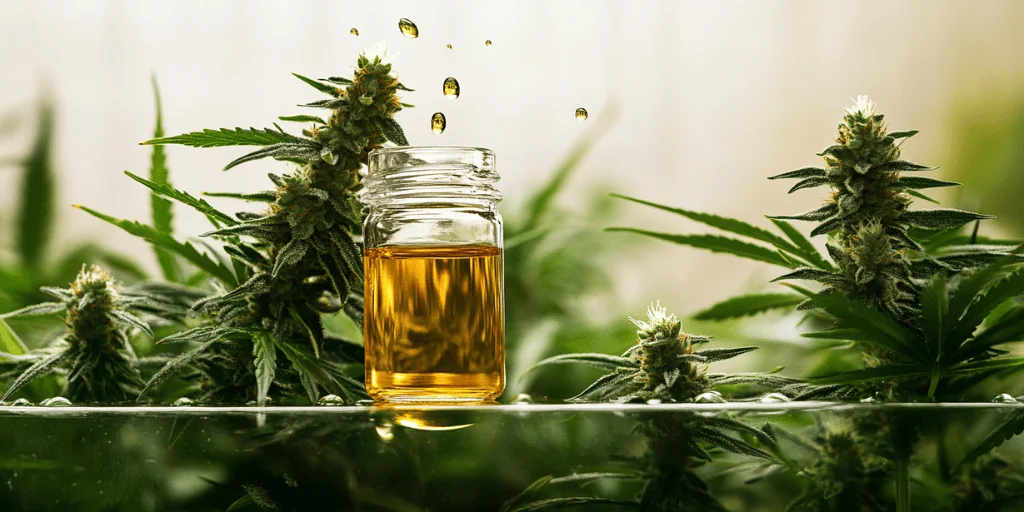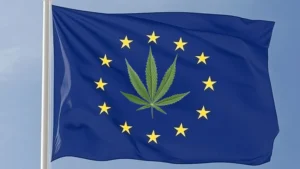The evolution of CBD regulation in Europe is marked by a diversity of legal approaches, making it both an opportunity and a challenge for businesses. Over recent years, several European countries have moved to rethink their attitude on CBD, particularly in response to increasing consumer demand and emerging research supporting CBD benefits. However, the pace and amount of regulatory changes vary significantly across the European CBD market. Countries like Germany and Switzerland have created clear guidelines for CBD production and sales, while some others still maintain more complex policies, sometimes creating a fragmented market.
For businesses wanting to enter or expand within the CBD market, understanding regulatory nuances is very important as they can then reduce risks and take advantage of growth opportunities effectively.
Since when has CBD been legal in the EU?
The popularity of CBD in the EU rose in 2017, following the European Union’s revised attitude on medical cannabis, which also opened the way for more widespread acceptance of CBD. While CBD has technically always been legal in the EU, its use became more commonplace after several member states updated their regulations.
Today, CBD is widely used across Europe, valued for its potential benefits in stress and anxiety relief, pain management, and improving sleep quality. As CBD regulation in Europe changes, the market for CBD products continues to expand. For businesses, the continued acceptance and growth of CBD highlight a promising area for business development and innovation.

The unclear status of foods with CBD
Understanding the food sector with CBD products in Europe might be difficult due to regulatory uncertainty, especially regarding the Novel Food Catalog. The European Food Safety Authority (EFSA) issued a statement leading to the temporary suspension of Novel Food authorization processes for CBD, creating uncertainty for businesses. This has led some authorities to question the legality of CBD-infused food products, which adds a layer of complexity for companies looking to enter this space.
For CBD to achieve stable regulatory acceptance as a food ingredient, businesses may need to provide comprehensive safety data, complying with the requirements of the Novel Food procedures. Until then, the landscape of CBD regulation in Europe remains unpredictable for food and beverage products, pushing businesses to consider compliance strategies carefully.
Regulations for European hemp products
For businesses wanting to launch a CBD product line in Europe, understanding and complying with CBD regulation is essential. Many brands have already taken advantage of the growing demand for CBD by offering a wide variety of products, from oils to CBD cosmetics. However, the European Union’s regulations on CBD products require careful consideration, especially in areas like product sourcing, labeling, and permissible claims.
Sourcing CBD that meets EU standards is advisable, as it can affect not only product legality but also consumer trust and market success. As it was already stated, CBD regulation in Europe varies across member states. For businesses, thoroughly understanding these regulations before entering the market can be a critical factor in creating a reputable CBD brand across Europe.

Hemp food on the market
In the European CBD food sector, regulatory certainty around hemp-derived ingredients like hemp seeds or hemp seed oil has simplified their legal marketability. Following updates to the Novel Food Catalog, the EU confirmed the safe consumption history of these ingredients, allowing them to be incorporated into foods and herbal infusions. However, a critical regulatory aspect for CBD products in Europe is ensuring compliance with THC limits, as set out by Commission Regulation (EU) 2023/915. This regulation specifies maximum allowable THC levels in hemp-infused foods, making it important for businesses to test their products in third party laboratories. Additionally, upcoming updates to these standards may set specific limits for THC in hemp leaf water infusions.
CBD foods and beverages
CBD-infused food supplements in Europe are classified as “Novel food” meaning they must meet specific authorization criteria before entering the market. According to EU law, all food products, including those with CBD, must comply with the safety standards outlined in the General Principles of Food Law. Since CBD did not have widespread consumption before 1997, it falls under novel food regulations, requiring approval from the European Commission.
For authorization, CBD products must demonstrate safety, lack of nutritional disadvantages, and must not mislead consumers. To date, no CBD product has received this official authorization, making it challenging for businesses to legally market CBD supplements in Europe.
CBD cosmetics
In Europe, CBD cosmetics must comply with the strict safety standards outlined in Article 3 of the Cosmetics Regulation. This regulation permits CBD cosmetics derived from hemp seeds and leaves, provided they exclude the fruiting tops, aligning with EU guidelines on safe and legal marketing. CBD cosmetics are popular in Europe for their skincare benefits, including antioxidant properties, anti-sebum effects, and skin protection. This regulatory clarity around CBD in cosmetics creates valuable opportunities for businesses looking to enter the European market, especially in skincare and wellness sectors. Businesses should ensure that their CBD cosmetic products meet EU standards and accurately represent their benefits, as compliance with CBD regulation in Europe not only builds consumer trust but also helps avoid legal complications.

Latest legislative changes in Europe
The European Commission’s ongoing examination of CBD under the novel food framework represents an important step toward establishing more consistent CBD regulation across Europe. In 2024, the EU classifies CBD as a novel food. Both businesses and consumers are hopeful that the European Commission’s efforts will lead to a more understandable regulatory process, facilitating trade and broadening access to CBD products in Europe.
Current uncertainties in France
A recent development in CBD regulation in Europe emerged on September 11, 2024, when France submitted a proposal to the European Chemicals Agency (ECHA) seeking to classify CBD as a ‘carcinogenic, mutagenic, or reprotoxic (CMR) substance’ due to concerns about reproductive toxicity. This proposal, first introduced in 2023, has prompted the ECHA to call for additional data on the safety of pure CBD, particularly focusing on potential contaminants like THC in extracts used in cosmetics.
While some studies suggest possible reproductive toxicity risks, some industry experts argue that the proposal may be influenced by political motives rather than compelling scientific evidence.
New policy directions on CBD regulation in Europe
CBD regulation in Europe has evolved considerably in recent years, influenced by a few European legal rulings and global perspectives. A landmark ruling in 2020 by the Court of Justice of the European Union (CJEU) highlighted the principle of free movement within the EU by prohibiting Member States from banning the sale of CBD legally produced in another Member State.
Additionally, the World Health Organization (WHO) has been important in shaping the global narrative around CBD, emphasizing its therapeutic potential and recommending its exclusion from controlled substance lists. These significant developments have helped to create the way for more flexible regulations in Europe.

Implications of the Court of Justice of the EU
The already mentioned 2020 ruling by the Court of Justice of the European Union (CJEU) has significantly changed CBD regulation in Europe, reinforcing the principle that EU Member States cannot prohibit the sale of CBD legally produced in another Member State. The CJEU highlighted that any restrictions imposed on CBD must be strictly for public health protection and should not exceed what is essential for this purpose. This ruling has considerable implications for the marketing and legal standing of CBD.
World Health Organisation’s recommendations on CBD
WHO has significantly influenced the international approach to CBD regulation, including within Europe. The WHO’s endorsement extended to CBD’s potential benefits for treating epilepsy, psychosis, and conditions like Alzheimer’s and Parkinson’s disease, further reinforcing its medical credibility. These recommendations have had a global shift in CBD perception, encouraging more flexible regulations and wider acceptance across Europe.
Future challenges and expected reforms
CBD regulation in Europe continues to face challenges due to the lack of unified standards across Member States. With each country setting its own regulatory standards, cross-border trade can sometimes be complicated, and the goal of a united European CBD market remains subtle. Efforts to address these inconsistencies include guidance from the European Food Safety Authority (EFSA), with a goal to create a framework that ensures public safety while supporting the economic potential of the hemp industry.
The ongoing debates over CBD’s health impact illustrate the complex task of balancing regulatory control with market accessibility. Potential regulatory reforms, such as the European Commission’s reconsideration of CBD’s classification and recommendations from the World Health Organization, may create the way for more standardized rules across Europe.
Harmonization of CBD regulation in Europe
Achieving harmonized CBD regulation in Europe is a challenging yet essential goal for the industry’s growth and market stability. Now, THC thresholds for CBD products vary between European countries, ranging from 0.2% to 0.3%. Efforts to standardize regulations are aimed at establishing a framework that prioritizes both public safety and economic development.
Standardization would not only simplify compliance for businesses but also enhance consumer trust in CBD products, ensuring that quality and safety standards are consistent across Europe. For business representatives, a unified approach to CBD regulation would ease operations and open opportunities for broader market engagement, potentially accelerating growth in Europe’s CBD market.

Current debates and future prospects
Current discussions about CBD regulation in Europe reveal the complex task of balancing legal control with accessibility. Countries like France have recently made regulatory moves by wanting to categorize specific cannabinoids as narcotics, while permitting CBD products with THC levels below 0.3%. Such actions demonstrate the challenges of creating consistent regulations across Europe, especially as Member States interpret CBD laws differently. Upcoming changes, including the European Commission’s potential reclassification of CBD, could reshape the rules surrounding novel foods, potentially increasing the variety of CBD products available to consumers.
Additionally, recommendations from the WHO and research into CBD’s effects continue to inform European regulators, helping them create policies that reflect the latest scientific understanding of CBD’s benefits and risks.
Final thoughts
The CBD regulation in Europe is in a period of transformation, driven by a push toward more uniform regulation and greater market accessibility. As European institutions work toward consistent guidelines, it becomes increasingly important for producers, traders, and consumers to stay informed and adaptable to emerging directives.
The potential reforms on the horizon could simplify business operations by easing commercial procedures and widening access to various CBD products. For businesses in the CBD sector, maintaining awareness of legislative developments is essential, as these changes can impact market entry strategies, compliance requirements, and product offerings.
Additionally, active engagement in regulatory discussions allows industry participants to ask for a balanced, innovation-friendly regulatory framework. With the right policies, Europe’s CBD market can achieve a mix of accessibility, safety, and economic opportunity, benefiting both businesses and consumers.



